Home
Festa della Musica 2020, per ripartire con la cultura
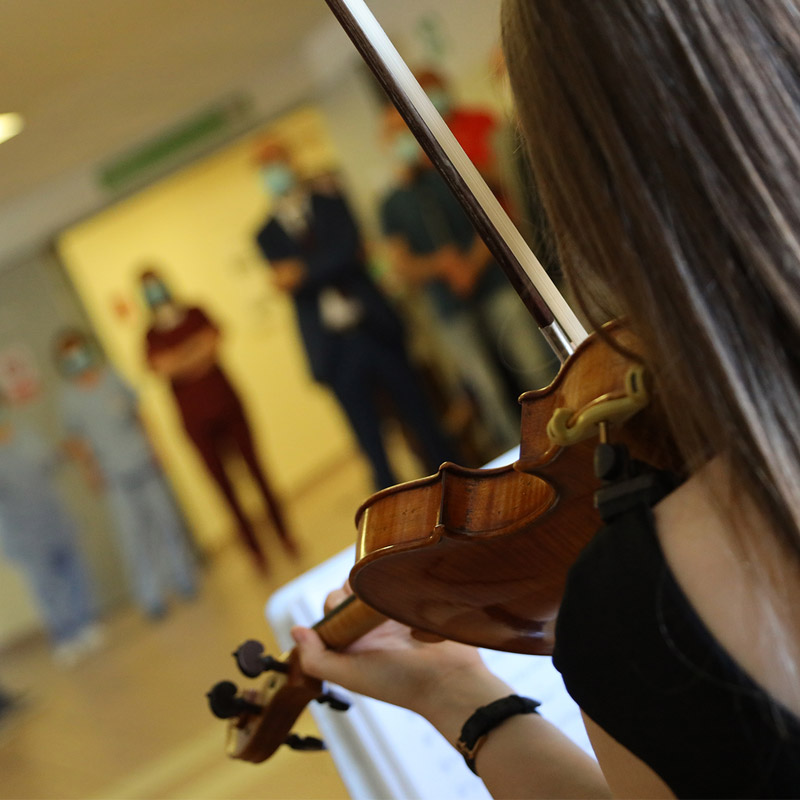
- Immagine condivisione Facebook:
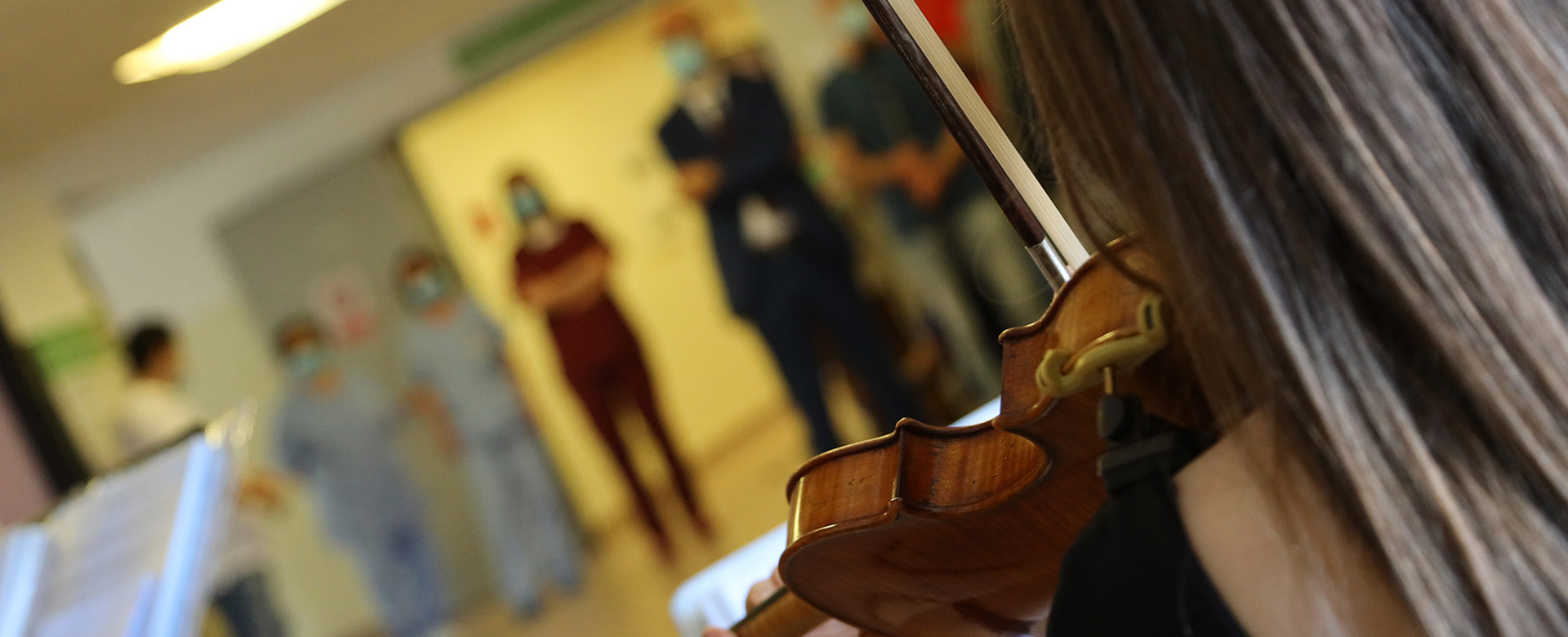
Ripartire da alcune delle fasce più colpite dall’emergenza Coronavirus, i malati, gli anziani, gli operatori sanitari e i musicisti, per riprendere il viaggio di Matera 2019 lì dove è stato interrotto. È stato questo lo spirito che ha animato le iniziative che abbiamo organizzato insieme al Comune di Matera fra la città dei Sassi e Potenza il 21 giugno per la 26esima edizione della Festa della Musica, promossa dal Ministero dei Beni e delle Attività Culturali e dall’Associazione italiana per la promozione della festa della musica.
In continuità con il percorso fatto nell’anno della Capitale Europea della Cultura, abbiamo deciso di portare la musica nei luoghi emblemi della battaglia al Covid-19 dei due capoluoghi lucani, ovvero gli ospedali e le RSA. Gli Ospedali sono stati, infatti, i presidi dove diverse professionalità fra dirigenti, medici, infermieri, oss e amministrativi, hanno risposto in maniera egregia ed instancabile ad una emergenza senza precedenti, ma anche dove i pazienti vivono ormai da diverso tempo una degenza senza la visita e il conforto dei propri cari. Allo stesso modo, le RSA sono i luoghi i cui residenti e gli operatori hanno vissuto necessariamente in condizioni di isolamento e reclusione. Portare la musica in questi luoghi è stato da un lato un gesto di ringraziamento, di vicinanza e sollievo ai protagonisti di questa fase delicata e dall’altro il segnale che le arti e la cultura sono un balsamo prezioso, capace di alleviare le ferite più profonde dell’anima e della mente.
La giornata è iniziata a Matera con le note della Bassa Musica “Nunzio Paolicelli”- Città di Matera che ha portato allegria nello spazio esterno della Residenza Sanitaria Assistenziale "Brancaccio", per proseguire all’Ospedale Madonna delle Grazie con i violini, il violoncello e il contrabbasso del quartetto "L'altro 900", esibitosi fra la hall e gli spazi antistanti il reparto infettivi e la zona di osservazione.
Nel pomeriggio, gli anziani della RSA “Raffaele Acerenza" di Potenza hanno accolto con gioia i brani della migliore tradizione italiana del “Soranno Sax Quartet”, mentre il “Trio Accord” con violino, violoncello e fisarmonica, accompagnato dalla possente voce del soprano, ha fatto risuonare di note e canto l’Ospedale “San Carlo”, fra la hall, il corridoio del reparto di rianimazione e l’ingresso della pneumologia. Ad emozionare in particolare i presenti, fra medici, infermieri e operatori, l’Ave Maria di Schubert, “forse la più celebre preghiera in musica, in grado di toccare tutti i cuori provati da questo difficile periodo”, come ha sottolineato Giovanna D’Amato, di Ateneo Musica Basilicata, che ha collaborato all’organizzazione dell’iniziativa.
In contemporanea, il Comune di Matera, in collaborazione con l’Associazione Onyx Jazz Club, attraverso una call pubblica ha raccolto sul palco di Casa Cava, a Matera, 18 tra cantanti, cantautori, musicisti e gruppi musicali di ogni età e ogni genere musicale, in un’esibizione trasmessa in diretta streaming fino a tarda sera.
Dopo i difficili mesi che ci lasciamo alle spalle, la musica, linguaggio universale per antonomasia, è stato lo strumento per donare serenità, ridurre le distanze, riallacciare relazioni, ripartire a fare cultura per e con la comunità.
Artlab2020: la cultura per il rilancio dei territori
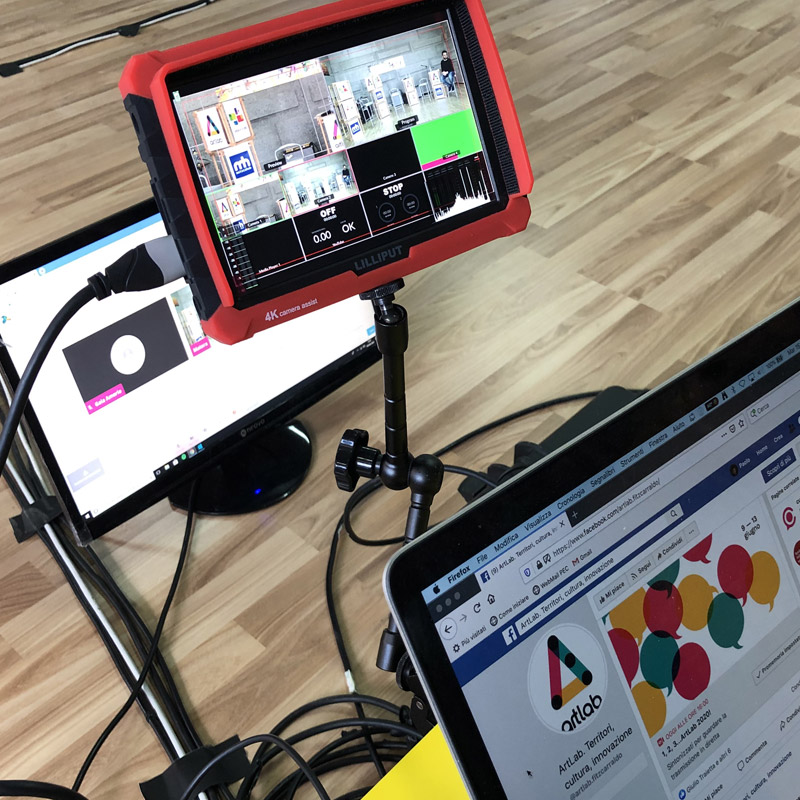
- Immagine condivisione Facebook:
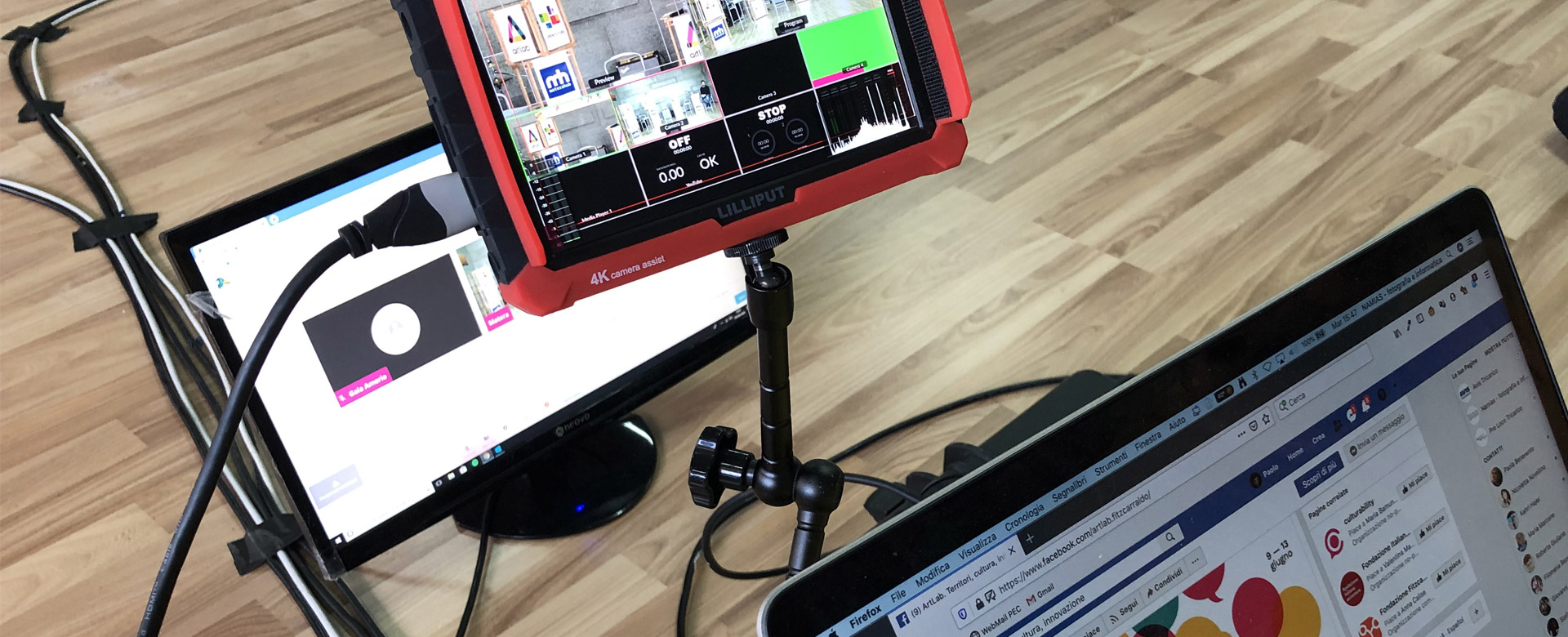
Matera passa il testimone a Bergamo a chiusura della prima tappa di Artlab 2020, un'edizione realizzata totalmente online dal 9 al 13 giugno, incentrata sulla condizione del settore culturale durante l’emergenza sanitaria e sulle sue prospettive future. Con il suo percorso di rinascita fino alla nomina a Capitale Europea della Cultura, Matera è diventata un riferimento per Bergamo, città duramente colpita dal Coronavirus e che ospiterà a settembre la seconda tappa di Artlab. Tra le azioni previste per la sua ripartenza, c’è l’unione con la città di Brescia per la candidatura al titolo di Capitale italiana della cultura 2023, proprio sulla scia di Matera 2019. Non un semplice titolo, ma un percorso per ridare entusiasmo al territorio, mettendo la cultura al centro della ricostruzione futura.
In questa speciale edizione di Artlab, che ha visto come main partner la Fondazione Matera Basilicata 2019, il cluster Basilicata Creativa e il Consorzio Materahub, Matera ha scelto di raccontare il suo percorso attraverso alcuni dei processi di rigenerazione a base culturale sperimentati nelle aree interne della Basilicata, inserendosi nella riflessione suoi luoghi marginali del nostro Paese avviata già prima dell’emergenza Covid e riesplosa oggi nel dibattito nazionale. In diretta dal Centro Polivalente - Palestra di Resilienza “D’amoroso foco” è arrivata la testimonianza di uno spazio pubblico rigenerato per far sì che la creatività giovanile possa essere il punto di riferimento per i cittadini. La comunità è anche al centro del progetto “Wonder Grottole” che lo scorso anno, grazie alla partnership con Matera 2019 e Airbnb, ha dato vita ad Italian Sabbatical, iniziativa attraverso cui 5 volontari provenienti da diverse parti del mondo hanno vissuto per i mesi estivi nel borgo di Grottole, innescando uno scambio di esperienze, competenze e sguardi sul territorio con gli abitanti del posto. La riflessione sul turismo e il concetto di “cittadino temporaneo”, che sposta l’attenzione dai luoghi alle persone, è stato sin dall’inizio al centro del programma di Matera 2019. Una delle strade per evitare la competizione fra residenti e turisti causata dall’overtourism, è stata quella di allargare i confini della città e della regione e, in questo senso le aree interne giocano un ruolo fondamentale. Diversi perciò sono stati i progetti di Matera 2019 che hanno coinvolto le comunità “remote” della Basilicata, da Capitale per un giorno ad AltoFest, a Gardentopia. In queste comunità la presenza degli artisti, che hanno lavorato sulla valorizzazione dei patrimoni materiali e immateriali del luogo, ha consentito di generare uno sguardo differente sul proprio territorio in chi lo abita e di portare nuovi stimoli.
Il tema dello spazio pubblico è inoltre al centro delle ricerche e delle attività dell’Open Design School, il laboratorio sperimentale di Matera 2019, che ha realizzato una mappatura dei luoghi della Basilicata in cui poter ospitare gli appuntamenti della Capitale Europea della Cultura. Un’attività attraverso cui è stato possibile rileggere il territorio, realizzata con il coinvolgimento di tecnici, ma anche di creativi e delle comunità che hanno svelato tali spazi. Il concetto di patrimonio culturale in questo modo si amplia, abbracciando anche la valenza sociale dei luoghi, ossia quanto un spazio ha un portato di valore per le comunità che lo abitano. Nei luoghi si sedimentano storie; sono come organismi viventi, che si trasformano nel tempo.
Uno dei luoghi coinvolti per raccontare Matera all’interno di Artlab 2020 è stato il quartiere de La Martella, nato nella periferia della città, a seguito dello sfollamento dei Sassi e frutto della sperimentazione urbanistica di Adriano Olivetti, incentrata sui bisogni della comunità. La piazza centrale del borgo, insieme al Teatro Quaroni, hanno ospitato la performance “Sono qui” realizzata da #reteteatro41, una rete di 4 compagnie teatrali lucane protagoniste di Matera 2019: IAC (Matera), L’Albero (Melfi), Petra (Satriano), Gommalacca (Potenza). Una riflessione performativa sulle nuove relazioni tra spazio abitato e comunità. Un vero e proprio manifesto dei creativi lucani per la ripartenza post-Covid e post-Matera 2019, che mira a rimettere al centro delle politiche culturali regionali il teatro, l’arte, la musica, lavorando insieme alle comunità, negli spazi pubblici di tutta la Basilicata.
A chiudere l’edizione materana di Artlab è stato il confronto sulle pratiche e le politiche culturali per le aree interne, cui hanno preso parte operatori culturali, policy makers, fondazioni tra cui Fondazione Matera Basilicata 2019, Fondazione Simbola, Fondazione con il Sud, con le conclusioni affidate a Francesco Monaco, Consulente del Ministro Provenzano per le Aree Interne e Coordinatore SNAI - Strategia Nazionale Aree Interne.
Sul sito della Fondazione Fizaccaraldo è possibile rivedere tutte le sessioni plenarie, le pillole di approfondimento e i webinar di Artlab Matera.
Matera 2019, leader of the European project DeuS
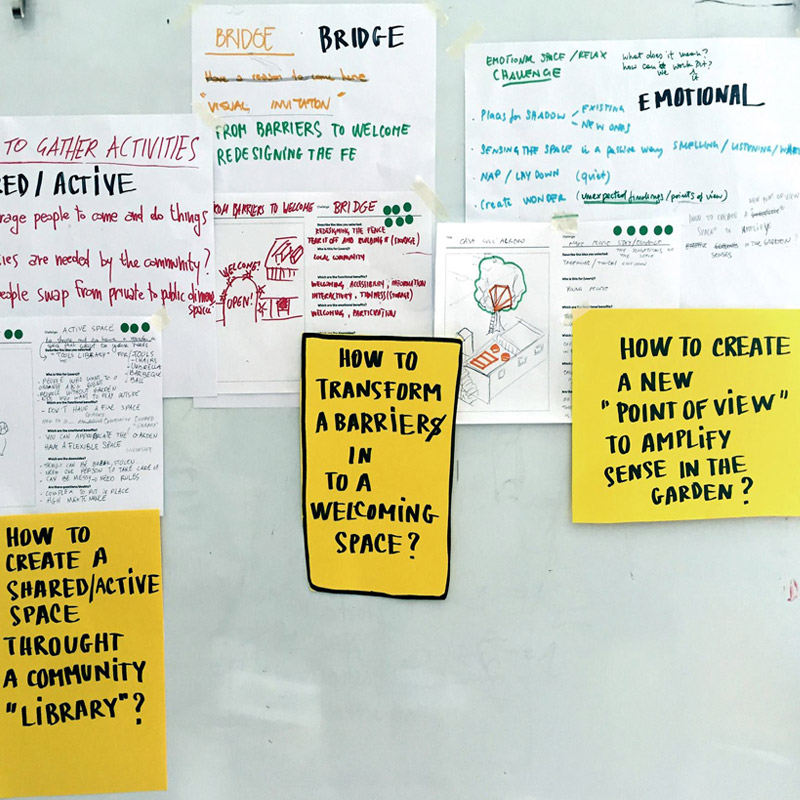
- Immagine condivisione Facebook:
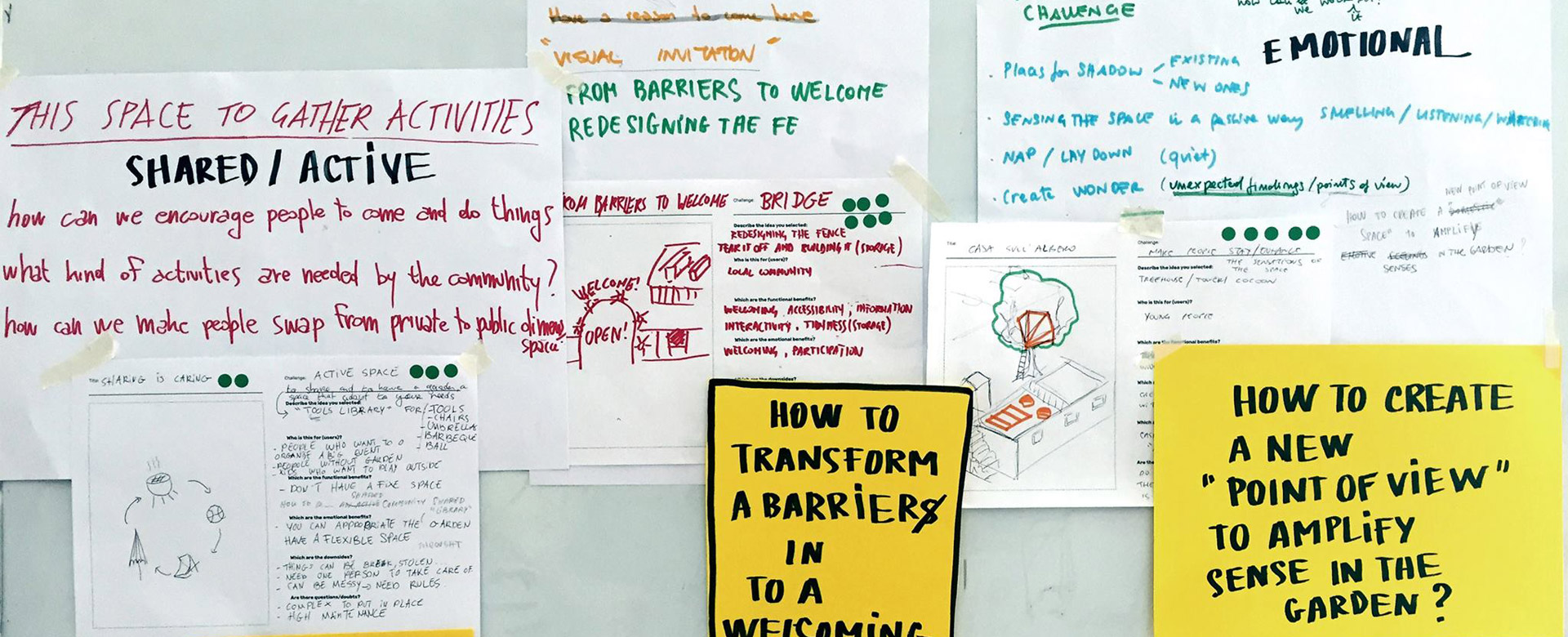
“DeuS – European Open Design School for Sustainable Regional Development” is a regional Vocational Educational Training project which aims to co-create a European-wide learning and training approach in design, critical thinking, and entrepreneurship to find creative and cost-effective solutions to local challenges, by unlocking the potential of the cultural and creative sector.
DeuS is a pilot project under the European Commission program Erasmus+ and will run for two years by a consortium of ten partners: Fondazione Matera Basilicata 2019 (IT), Consorzio Materahub Industrie Culturali e Creative (IT), Vytautas Magnus University – VMU (LT), XAMK – South Eastern University of Applied Sciences (FI), ECBN – European Creative Business Network (NL), University of Wales Trinity Saint David Royal Charter – UWTSD – Creative Industries Research and Innovation Centre – CIRIC (UK), Creative Region Linz & Upper Austria GmbH (AT), Creative Business Cup Foundation (DK), Valletta 2018 Foundation (MT), Creative Industry Košice – CIKE (SK).
DeuS is shaped around Open Design School, the pillar project of Matera 2019. Its methodology - a design laboratory using a peer-to-peer approach, where professionals of any discipline work together sharing knowledge and expertise and testing the design solutions with the local community - will be used for DeuS training activities.
This training methodology will be used to develop a toolkit that will be made available on a Creative Knowledge Platform where the education system, in particular VET (vocational and educational training), and the cultural and creative industries (ICC) professionals will be able to draw on an open source training offer, based on a participatory and co-creation approach. The platform also aims to establish a community for the different target groups across the ICC sector, encouraging cross-sector and cross-border collaboration and promoting the meeting between creatives, policy makers and citizens.
Users can expect high-level and user-friendly training, tools, and sources in support of lifelong learning in the cultural and creative industries with a focused and pragmatic response also to the critical needs of the CCI sector apparent as a result of the COVID-19 crisis. Alongside the digital universe, the project will organize collaborative problem-solving sessions across Europe. The project will challenge the concept of sustainable local development by focusing on the transformative power of the cultural and creative industries.
The DeuS projects’ ultimate goal is to put human capital, local communities, and the creative and cultural operators at the forefront of regional development strategies, which is exactly what the combination of the Creative Knowledge Platform and the physical training and co-creation events can provide. The goal is to foster open dialogue with policymakers and to show them that the community of educators, creatives and local forces that the project is building is the key to enabling the innovative, sustainable and lasting solutions we need.
DeuS has launched a set of four surveys to understand the current needs of the cultural and creative industries.The aim is to hear from the stakeholders to gain insights and an in-depth understanding of needs, challenges, barriers and innovative solutions in place across the cultural and creative sector. The information get from the study will go towards creating an optimised training programme and resources for the benefit of cultural and creative industries across Europe.
Through the DeuS project the legacies of the experience of Matera European Capital of Culture 2019 are beginning to be harnessed. The wealth of skills and good practices developed in this path from Open Design School, will be transferred to an international think tank, offering innovative solutions for the benefit of the local and European creative and cultural sector.
Matera 2019 and the social culture
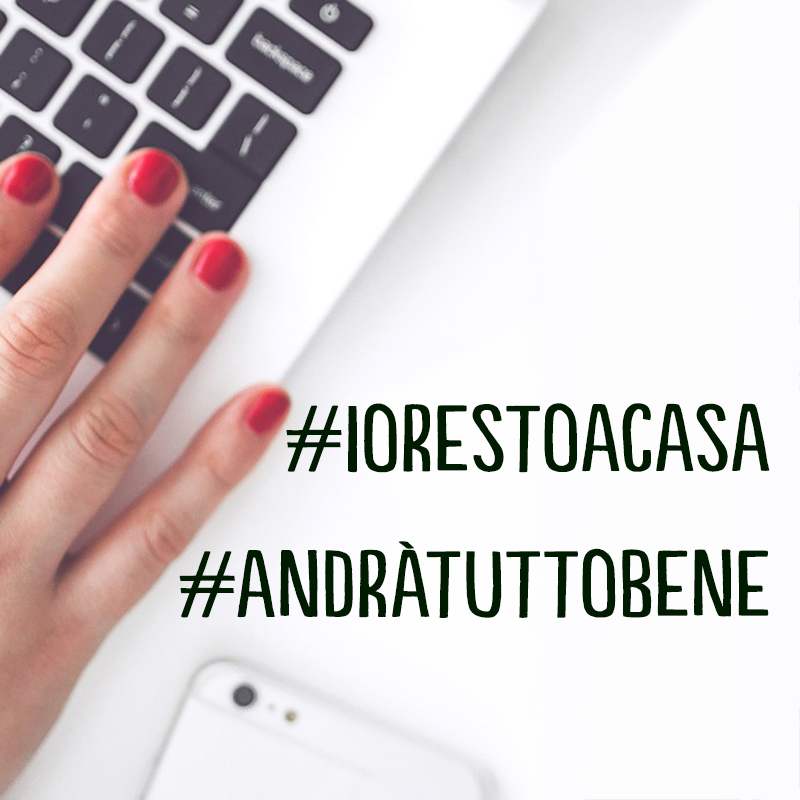
- Immagine condivisione Facebook:

With an extraordinary year (2019) and path (the one that led us to 2019) behind us, the Matera-Basilicata 2019 Foundation is now working towards the future. It is true that due to the COVID-19 emergency, some projects have been postponed, others are being developed (also in light of the new perception of reality and our way of enjoying culture that will surely undergo changes), and others are still flourishing in these days and are a source of support to those who are on the front line of the current Coronavirus emergency.
With the experimental design workshop “Open Design School”, which was a pillar project of the Matera 2019 programme and legacy, thanks to various tools and professionals, 500 face shields have been created for the healthcare workers of Basilicata.
At the request of the Basilicata emergency services and in coordination with the Regional Civil Protection for the distribution, makers, professionals, digital and medical craftsmen have become involved in these activities included in the widespread digital manufacturing project developed by Officine Mediterranee, a network of Southern Italy fab labs, coordinated with the Syskrack association of Grassano (MT). The latter also launched a fundraiser for the purchase of the materials necessary for the production of another 500 face shields built with materials recovered and repurposed by the makers themselves: plastic supports created with 3D printers, elastic bands, rubber supports, PVC/PET sheets, etc.
Furthermore, for the intensive care unit of the "Madonna delle Grazie di Matera" Hospital, Open Design School has produced, in partnership with local makers, a plexiglass case that reduces exposure of the health workers to contamination when carrying out intubation and other high-risk procedures on the airways of COVID-19 patients, providing an additional protection system. The idea came from a proposal put forward by Dr Francesco Zuccaro, doctor at the Matera hospital, as well as an open data and open culture enthusiast, who suggested to the ODS team the creation of an "aerosol box" designed by a Taiwanese doctor and validated in an article in "The New England Journal of Medicine" by a team of doctors from Boston who tested its protective efficacy through simulations. Following the success of this first experiment, the Open Design School team will create new cases for other hospitals in Basilicata.
Finally, Open Design School will provide support to the tailoring workshop of the Silent Academy of Il Sicomoro Co-operative, where the boys and girls of the SPRAR project and the operators have started a small-scale production of masks made with African fabrics, with the common goal of making themselves useful at such a difficult time for the whole community.
Matera 2019 is also present online.
Collective productions, collaborations between cultural inhabitants, exchanges between different artistic identities to set up important and profound co-productions: what would cultural spaces be without the visitors, spectators, listeners, participants, and mere onlookers of the planned initiatives? That's why, for about a month now, with Matera 2019 we have fully accepted the appeal of MiBACT to spread the beauty of our artistic and creative heritage online, involving and entertaining the public at home as much as possible.
We are doing this via our social media channels both by retracing the beauty of what has been in stages and by reworking in different ways the contents collected in an immense archive of images, videos and sounds, and by bringing together excellent initiatives at a national and international level, to communicate how much beauty -despite the current circumstances- is circulating thanks to the digital grapevine, narrating the amazing miracle of amazement that is taking place on the web.
Whether they are those promoted by our partners or by small and large cultural institutions, every day we have made available our virtual spaces to share beauty and wonder, putting ourselves at the service of those who right now are following us "from home", the only place from where it is possible to look at the world today. And we will do it again. Therefore we invite you to continue to follow us and to keep us company in compliance with the main rule: stay at home!





